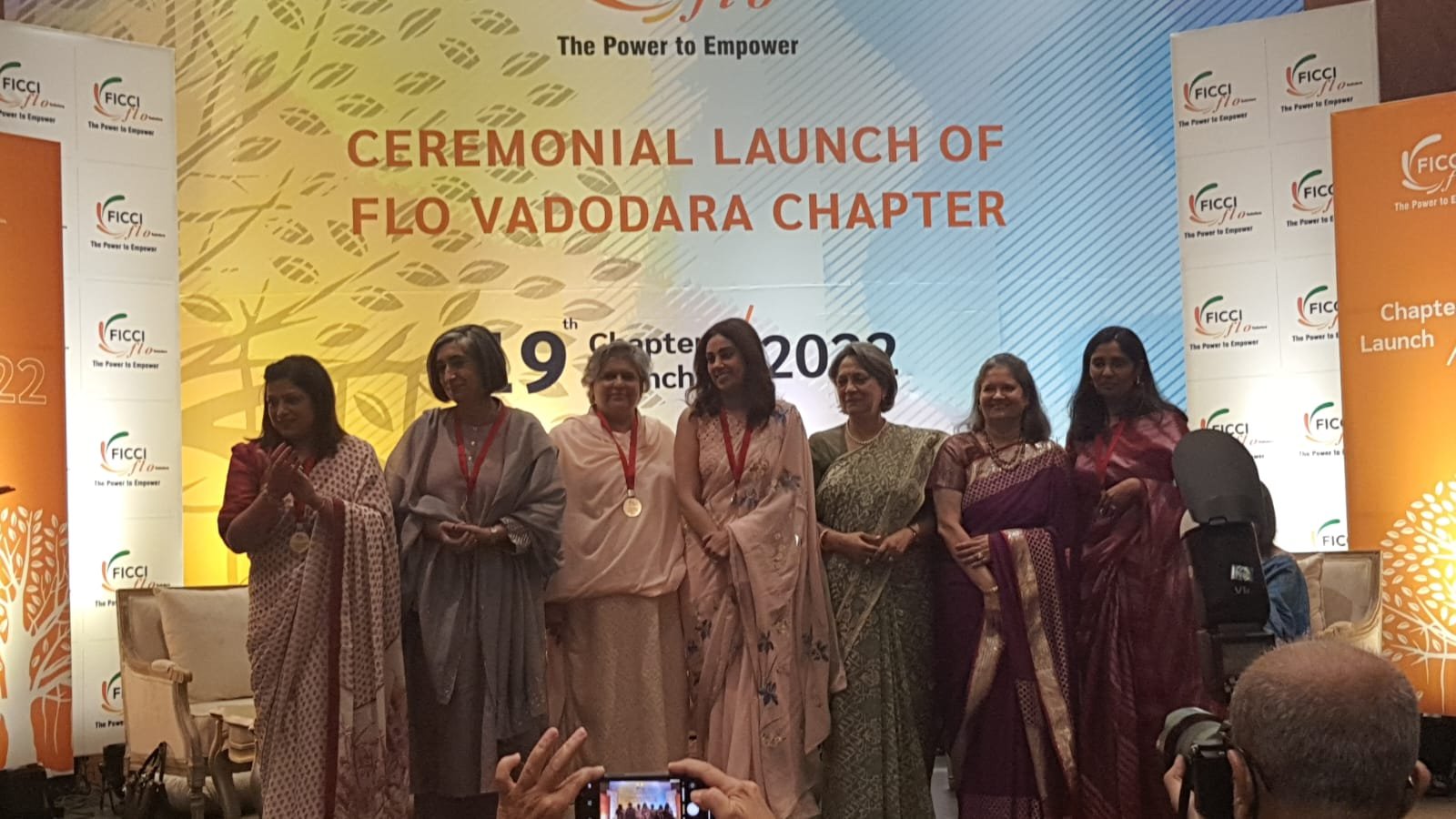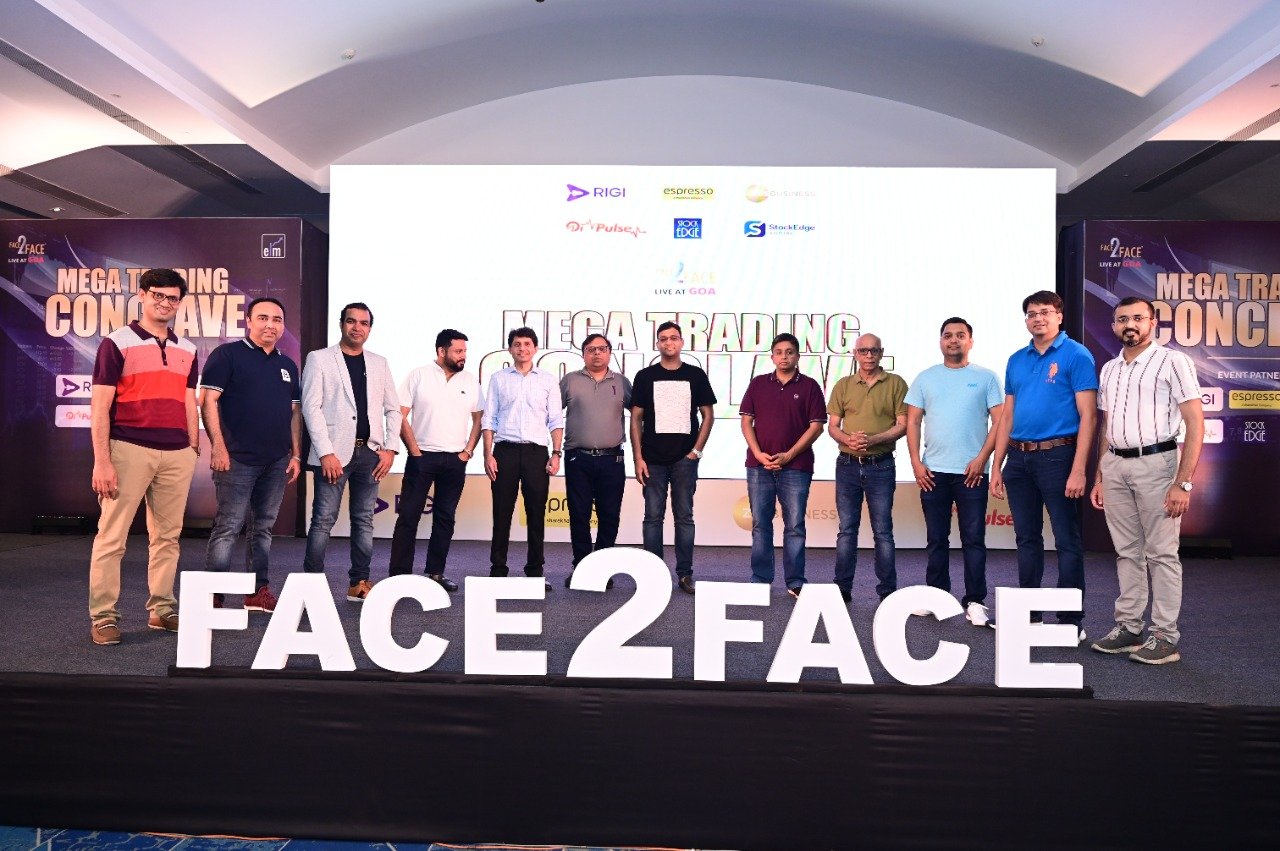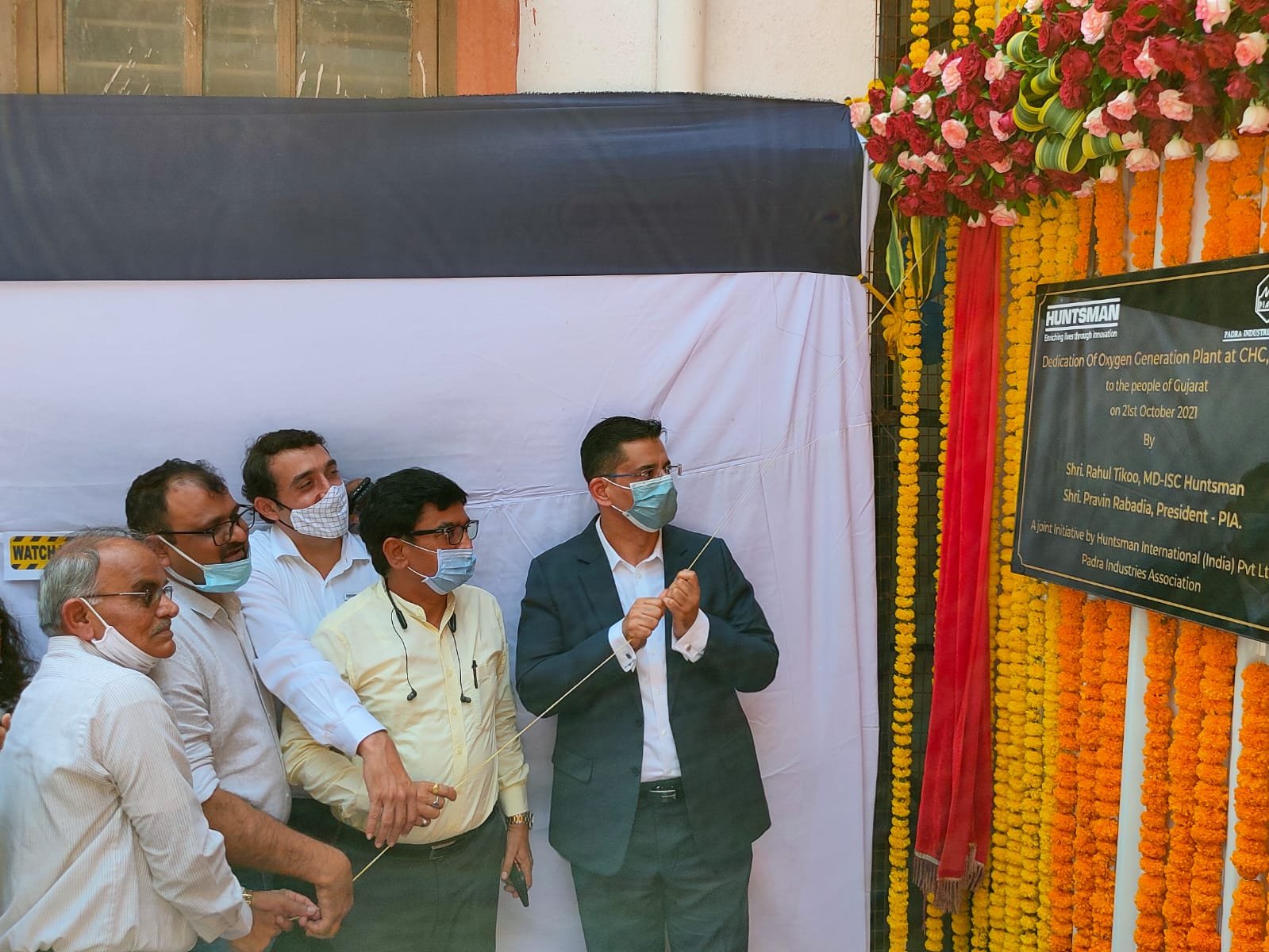Post pandemic Budget expectations from Small, Medium & Enterprise businesses
After the battle with Covid 19, the finance minister is going to present the first post pandemic budget. Every Small, medium and large enterprise has a lot of expectations from this budget. The budget will surely impact the economy and pattern of entrepreneurs and businesses. At this juncture we have tried to take a drone view from the leaders in all three categories of businesses.
Mr. Mahendra Patel
Managing Director
Lincoln Pharmaceuticals Ltd
“Reforms in the taxation structure including GST, restoring export incentives, simple and consistent policies, and compliances are some of the key issues to be addressed in the budget. The tax rate of 25% is extended to companies with an annual turnover of up to Rs. 400 crore. The time has come that the limit is raised to Rs. 1000 crore so more small units can avail the benefit.”
Mr. Kamlesh Patel
Chairman and Managing Director
Asian Granito India Ltd
“Inclusion of natural gas in the GST regime, Incentives for export and bringing tiles and sanitaryware in desired 12% GST slab could be the key growth triggers that the tiles industry expects from the budget. Natural Gas (fuel cost) is one of the major cost components for the tiles industry and keeping it out of the GST regime is putting the tiles industry at disadvantage. It is high time that it should be brought under GST.
The tiles and sanitaryware industry is an integral part of the infrastructure and resonates with key government initiatives including Swachh Bharat Abhiyan, Make in India and Housing for All and bringing it in the 12% GST slab from 18% currently will provide a much-needed boost and also help in building affordable houses. Post-Covid, the World is looking at India with great potential to fill the demand gap. It is imperative that the incentive on the export of tiles should be reviewed and increased to boost exports.”
Mr. Ajay Mokariya
Managing Director
Shree Maruti Courier Service Pvt Ltd
“The logistics sector is the lifeline in moving the wheels of the economy and being one of the largest employers, the government should offer incentives to the organized players for employing un/semi-skilled workforce and investing on their skill development. The NDA government should speed up the dedicated freight corrid
Malini Agarwal – Founder MissMalini and Creative Director Malini’s Girl Tribe
It’s impossible to think about next year’s budget without considering the devastating toll of Covid-19. The government’s first priority must be to consider society’s most vulnerable and ensuring their stabilization and recovery, otherwise the existing disparities will only be exacerbated in the years ahead.Extending loan moratoriums, debt forgiveness, targeted tax breaks, and increased credit facilities at accessible rates are just some common-sense measures that can help. However, these need to be designed smartly beyond the short term so they don’t just pile up crippling debts for another day.
We must also be better prepared for future catastrophes. Investing in our digital infrastructure and accessibility is a clear imperative for 2021. My budget wishlist always includes programs specifically designed to empower women, and this year is no exception. Considering women are among the most vulnerable in our society and were disproportionately impacted by the pandemic’s economic fallout, I hope to see strong measures to support women’s labour force participation, savings schemes and progressive employment and tax policies that ensure women can weather future economic disruptions.
Mrs. Damayanti Bhattacharya – Principal of Jasudben M L School
Post budget 2020, life changed dramatically due to the pandemic and we experienced an unprecedented situation not seen in 100 years. Education was completely disrupted across the world. Internet, digital connection and, the technology of working remotely taught us how to handle extremely difficult situations. As we all know the digital push trained us across India at an incredible speed and teachers, students and parents adapted to the NEW Normal admirably well.
Budget 2020-21 introduced the New Education Policy (NEP) with a few key deliverables like Universal access to education from ECCE to secondary, ensuring equity & inclusion, bringing back 2 crore children to school, and focusing on 21st-century skills in teaching, learning and assessment. According to me, the 2021-22 Union Budget should focus on the digital mode of education as it has become entrenched. Our first focus should be the teachers in Pan India ( Tier I II III cities and in the rural sector) who would need extensive Teacher Training programmes. Improving the infrastructure of the school with an adequate budget and fund allocation should be done in this budget particularly for the rural sector. My suggestion is to create a fund through the public-private partnership to help meritorious and bright students, particularly from the EWS category. The idea is to spot talent, nurture them and ensure that they are not missed out.
Chef Aditi Handa – Co-Founder and Head Baker, The Baker’s Dozen
On a professional front, we have observed a great change in the F&B sector, as many establishments struggled to keep up their work during the pandemic while the others had to shut their doors for their consumers. It is very necessary to provide the F&B sector with a dedicated stimulus package in the budget that can ease their pandemic journey. Also, as the lockdown has observed a growth in the home growth brands who wish to do something big in the upcoming future, it would be great if the government can provide them with access to easy credits to start their businesses on a larger scale.
Personally, I foresee 2021 as a great opportunity to start the business once again, as the country lifts restrictions and as the new vaccine rollout is in process. Though the major beneficial sector remains the essential service providers as they meet the needs of the consumers. The other sector will observe growth eventually as people start to ease in their old routine and settle back into their old lifestyle
Ms. Mrunmayi Desai- Founder and CEO of The icode Hub & idigitize Solutions.
The calendar year of 2020 has been quite a revealing one. It has truly made us realise that the best wealth is health and the most valuable asset is family! Apart from these learnings, the most important takeaway has been the rapid digitization of the entire work-culture and the way one and all have adopted the same has been heart-warming and inspiring.
From Budget 2021-22, the expectation would be to now ride this digital wave and embrace it full-on. Would like to see the government announce special incentives for the information and technology industry. Giving a boost to this industry with the mantra of “Local for Vocal” will see India being at the fore-front of technological advancements.
Another point of focus should be the brick-and-mortar establishments. Digitization is of course here to stay, but these establishments are still the backbone of the Indian economy. The year gone by has been a hard-hitting one for them and with the world learning to thrive in the new normal, these businesses have geared up and are raring to go. The FM should look at creating a conducive launchpad for them which will increase the morale of the economy and will aid in moving forward on a path of recovery.
Mr. Kausshal Dugarr – Founder and CEO of Teabox, India’s luxury premium tea brand
With the entire tea industry looking to pivot online in a post-pandemic world, the government should focus on increasing the pace of digitisation in semi-urban, non-urban or Tier 2 & 3 cities across the country by a faster roll-out of 5G services this year. This shall enable direct-to-consumer companies like us gain faster access to these untapped markets, expand the distribution channels and build on our customer base. This, of course will be possible if backed by initiatives to revive demand in the country by boosting job creation opportunities and accelerate growth of manufacturing and industrial activities. A reduction in personal income tax should help put more money in consumers’ hands and improve overall consumer sentiment.
To attract foreign investments in the sector, facilitating ease of doing business is important so that the industry becomes attractive and there are new funding opportunities for upcoming tea brands in the country. The taxation structure needs a relook wherein the government must ensure the start-ups in the sector can be provided bigger tax breaks so that they can invest in creating a vibrant online ecosystem; whereby more value and efficiency is created. More clarity on e-commerce policies and a budget that addresses regularisation of the digital economy & an adequate information communication technology (ICT) infrastructure to support the robust growth of start-up economy will set the pace for the year ahead.
Mr. Rahul Aggarwal, Founder, and CEO of Coffeeza
The one thing, that we hope to see in the new budget, is a lower GST on small home appliances category which is currently at 18%. In our country, majority of the population aspires to own small household appliances to make their lives better and easier. With changing lifestyles, that demands a lot of time from the working populace, many of these appliances have become a necessity. Furthermore, with the coronavirus pandemic that hit in 2020, consumers are now increasingly wanting to move towards more comfortable, convenient, and smart home appliance options. The 18% GST levied becomes a deterrent for consumers to make this move. If the GST rate gets lowered (to say 12%), such appliances will be easier to buy, and more consumers will be able to afford these products, making their quality of life better.
Mr. Sneh Jain – Co-founder and Managing Director, The Baker’s Dozen
The year 2020 has been a tough one for all the industries and especially for the F&B sector; many enterprises observed a complete shutdown or were forced to downsize. According to me, a dedicated stimulus package in the Budget for the sector, predominantly targeted to individual restaurant owners would definitely help. Further, the government should also focus on easing access to credit for small and medium businesses.
From a bakery industry point of view and looking at the current scenario, the bakery establishments cannot claim a complete input tax credit. While this led to the increase in the price pre-Covid, with increased costs of hygiene and manufacturing due to strict adherence to protocols, there is an urgent need to reinstate 100% input tax credit for the sector.
Personally, I believe there is definitely optimism for 2021, as the country opens up post lockdown and with the impending vaccine rollout. While most sectors will show growth, all business owners will still have to adhere to strict hygiene and sanitization protocols. Essential purchases will continue to dominate the family spend compared to luxury goods as the consumers will still calculate the difference between the need and want before purchasing any products. All the sectors will definitely observe an increase in discretionary spending once the jobs scenario starts to ease out and people start gradually setting back into their old lifestyle.”
The pandemic and ensuing lockdown in 2020, saw a huge proportion of organisations pulling out all the stops to ensure their employees can work both remotely and seamlessly. However, the sudden shift to work from home also threw open several opportunities for cybercriminals to take advantage of. As businesses return to offices, it will be a different challenge to regain cyber hygiene due to tampered settings and multiple uses of office devices.
This year’s Union Budget will be one that organisations across industry sectors are looking forward to. We believe it should take into account necessary provisions for companies to secure their operations from cybercriminals and ensure complete compliance. This can be done through incentives and tax subsidies.
As per our recent survey, with 100% Indian businesses being concerned about their current level of cloud security, there is a need for initiatives to develop cybersecurity skill sets that also take care of security of cloud environment which is the backbone of accelerated digital transformation that India is witnessing due to the pandemic.” – Sunil Sharma, Managing Director- Sales, India & SAARC, Sophos
“I believe it would immensely help if the budget can address the MSMEs ( a sector that contributes 30% to the GDP and plays a vital role in 40% of our exports) with incentives to adopt the latest digital technologies and augment growth and operational efficiency. We are at the onset of a decade of accelerated digital transformation across industries and we are well-poised to address this global demand by leveraging the power of young India. To facilitate this, the government must consider initiatives in areas such as broadband internet penetration and building a secure technology infrastructure to ensure democratic access to digital skills and ubiquitous learning opportunities for our largely millennial population.” – Javed Tapia, Managing Director, Clover Infotech
“As enterprises move on with their business continuity plans for 2021 after a year full of tech disruptions, the aim should now be to adapt fully to the new normal, and upskilling and reskilling are an integral part of this process. Organizations now need to focus on holistic development of employees and not just on technical skillset enhancement. Since, Artificial Intelligence (AI), Machine Learning (ML) and augmentation are increasingly getting integrated in the workplace, digital literacy has become an imperative for employees to function seamlessly in the post COVID – 19 era. Training and reskilling at organizational level is not going to help the workforce of future. The government need to take this opportunity to re-look at university curricula and skilling programmes and update it with relevant digital-age skills. It must create the technology infrastructure and internet penetration to create a democratized opportunity to learn digital skills. Furthermore, it must come up with learning and development initiatives at various levels – national, state, districts and towns to train the fresh talent in these new-age skillsets that have become vital for survival in the new normal.”- Lakshmi Mittra, VP and Head, Clover Academy
“For India, this budget will probably be the most important one in decades. The world has changed and from our perspective, the pandemic has put all focus on the importance of Logistics and Technology. Global and national supply chain is of paramount criticality in 2021 and beyond. This sector is the backbone of modern civilization and the Indian government should look at ways to simplify global trade. We build from India for the world and increasingly, more technology startups would be doing this. Currently, there is a very high degree of compliance and paperwork which makes it difficult for technology companies to serve the global audience and this forces companies to shift base outside the country. Urgent steps in this direction will help high growth companies keep base in India, generate employment across the spectrum and help revive the national economy after the shock of the pandemic.” – Dhruvil Sanghvi, Chief Executive Officer, LogiNext
Rajesh Uttamchandani, Director at Syska Group said, “With the ongoing pandemic and a challenging 2020 for businesses across industry sectors, everyone is looking forward to the Union Budget 2021 that will be presented soon. We believe the government can offer support to the manufacturing industry through tax reforms and by supporting the expansion of distribution and supply chains. Further, the Government could also look at mitigating the legal procedures involved in establishing manufacturing facilities in the country, under its ‘Atmanirbhar Bharat’ initiative. In the last few years, the government led by Modi Ji has brought about a slew of policies and reforms to ensure economic prosperity of the country. Last year, the honorable Prime Minister Shri Modi Ji introduced the production incentive scheme (PLI) scheme with an aim to offer opportunities for home-grown and international electronic businesses to improve their manufacturing competences in India. We are confident that the Modi Ji’s Government will consider this sentiment and enable India based organizations to avail of benefits that will help them establish a strong foothold from a manufacturing perspective. Additionally, there also needs to be focus on undertaking measures to promote production using emerging technologies and automation, which will enhance both production quantity and quality while simultaneously emphasizing on the importance of shifting to energy-efficient solutions in line with the Government’s National Smart Cities Mission.”
“In 2020, the manufacturing sector faced several challenges due to the pandemic and ensuing lockdown. To help overcome the obstacles, Prime Minister Narendra Modi gave it a fresh impetus by making it the centre of the Government’s Atmanirbhar Bharat initiative. The government introduced the production linked incentive (PLI) Scheme in November 2020 to help open up opportunities for domestic and global electronic businesses to increase their manufacturing capabilities. Even though such steps have been taken to counter the obstacles faced in 2020, there is a requirement in terms of providing further incentives to industry especially when it comes to manufacturing companies, in the forthcoming Union Budget 2021. The Government can focus on attracting foreign investment, adopting cutting-edge technology, and enhance exports in order to make India a global manufacturing hub, through its ‘Atmanirbhar Bharat’ and ‘Make in India; initiatives. This in turn will boost employment opportunities for citizens which is the need of the hour in a post-pandemic world. We look forward to policies that will leave more money in the hands of consumers as it will help boost demand in the economy.” – Mr. Kishan Jain, Director, Goldmedal Electricals
“The ’21 Union Budget provides two big opportunities. Firstly, boost economic growth by scaling investment in digitization. Secondly, drive technology enabled rationalization of the country’s tax infrastructure. The former will bring employment and self-employment opportunities for the youth through digital initiatives of Start-ups and MSMEs. The latter will enable businesses to thrive in a simplified indirect- tax compliance regime powered by new technologies like hyper automation. This will also ensure that the funds collected through GST are used efficiently and help in generating economic growth in this financial year. It is important to have a set framework and policy for GST compliance for all businesses in India, let us see how the government addresses this.” – Mr. Niraj Hutheesing, Founder and Managing Director, Cygnet Infotech
Srikanth Chakkilam, CEO, Cigniti Technologies
“We feel quite optimistic about the Union Budget 2021. We anticipate the Government to create special provisions for the technology sector in its bid to achieve a trillion dollar economy. We feel that the budget should reflect on three focus areas: Digital transformation, Data protection and Privacy and Cloud based Infrastructure leveraging disruptive technologies to boost the overall IT-sector.
In the wake of everything moving digital, Data protection and privacy have been the most discussed themes of 2020 with a lot of concerns surfacing pertaining to data laws. Cloud infrastructure has seen a large amount of investment announcements by private enterprises over the past few months, however one aspect that requires greater focus is that of Cloud security. The budget should promote incentivizing enterprises to adopt intelligent AI-driven quality assurance frameworks which will lead to higher performance, productivity and reduction in Cloud application and data security breaches. Secondly MSME’s over the past few quarters have shown muted growth, the budget needs to subsidize and incentivize the use of new-age technologies such as AI and ML in driving the growth of MSMEs.”











